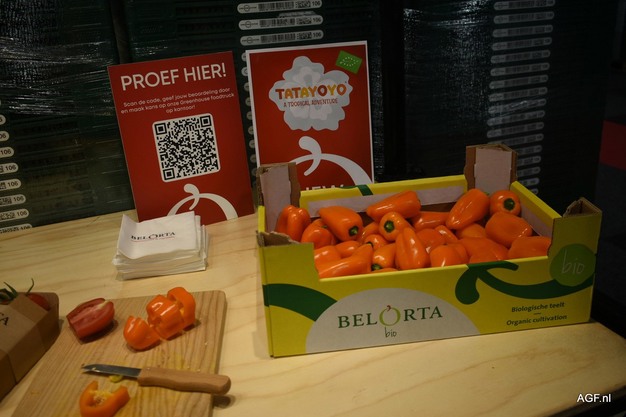The organic greenhouse vegetable market is currently experiencing strong demand, according to Gunther De Vadder, organic manager at BelOrta. "Everyone is gradually aiming to reach that 30 percent organic target on store shelves, so we're seeing increasing demand for organic products. If this trend continues, I see great potential for organic. In recent months, I've had to turn down more requests for greenhouse vegetables than I could fulfill."
"We need to continue planning carefully," he adds. "When it comes to 'bulk products,' like vine tomatoes and cucumbers, it's important to keep the market balanced. If organic performs well, businesses will respond, but we need to be able to meet growing demand sustainably. Stability is key. Consumers don't want to see an organic cucumber priced at 60 cents today and 1.10 euros tomorrow. If we can keep prices stable, we can keep the market calm. Many focus too much on weekly price fluctuations, but that's rarely beneficial for anyone."

"Our approach is structured, and we maintain strong partnerships. Eventually, opportunities will arise in certain segments for growers to switch to organic cultivation again. I can foresee this happening, but it makes no sense if the product ends up being sold in the mainstream market—that used to happen sometimes, but those days are over," Gunther explains. "For example, we have a grower with several hectares of available land who already grows organic potatoes for us. Now, he's considering sprouts, which we don't currently offer. In that case, we say, 'Go for it.' We can usually market those additional hectares just fine."
Oversupply of cucumbers and tomatoes expected soon
However, Gunther emphasizes that there must be sufficient demand. "If I were to add two more hectares of vine tomatoes tomorrow, there would be too much on the market, and prices would collapse. With cucumbers, on the other hand, there's room for expansion. In the Netherlands, very few organic cucumbers are being planted, but demand from Germany—and partly from the Netherlands itself—is strong. However, Dutch growers seem reluctant to plant them, perhaps because they see more potential in other products."
"Cucumbers have also been a highly volatile product when exporting to Germany, with prices often coming under pressure. No one made any money then. Right now, cucumbers are sensitive to price fluctuations, which works in our favor because we've already secured prices before ordering planting materials. This is an example of how we analyze the market."

The Tatayoyo was presented at BelOrta's past Product Show
Tatayoyo
"Another example involves specialty varieties," Gunther continues. "We're currently testing the Tatayoyo, a very sweet snack pepper developed by Rijk Zwaan. We're starting on a small scale, but I can already say that the test is too small—it yields between 8 and 10 kilos per meter, and demand is very high, which is naturally driving prices up. Interestingly, in the mainstream market, this product is mainly appealing to discounters. In Belgium, Natuurvoeding will carry the trial, and soon we'll have worked through 300 meters of Tatayoyo."
While bulk products require close collaboration with growers to monitor market trends, specialty products involve identifying specific market needs. "We start small and let demand grow organically. Organic baby leaf spinach is another example. It's no longer in the testing phase and is now cultivated across several hectares during the colder months. These niche products, which are less available in the mainstream market, allow us to fill that gap. Initially, it's just an introduction, but once demand grows and consumers are willing to pay for it, you can successfully launch great products into the market."
For more information:
Gunther De Vadder
BelOrta![]()
Mechelsesteenweg 120
B-2860 Sint-Katelijne-Waver, Belgium
Tel: +32 155 655 291
[email protected]
www.belorta.be










